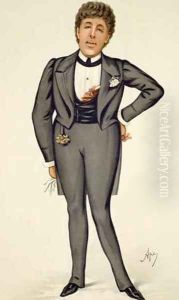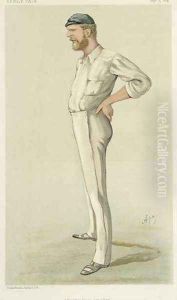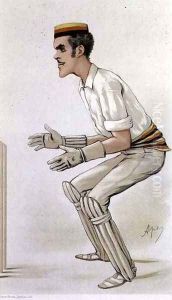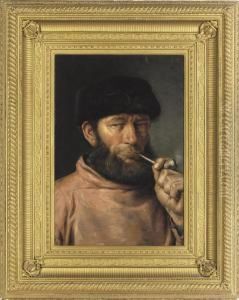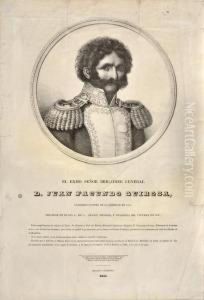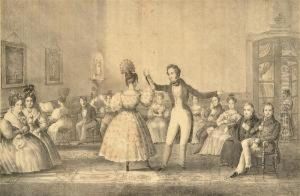Carlo ('Ape') Pellegrini Paintings
Carlo Pellegrini, who often signed his works as 'Ape,' was an Italian caricaturist known for his work in Victorian England, particularly with the satirical magazine 'Vanity Fair,' where his caricatures became a defining feature. Pellegrini was born on March 25, 1839, in Capua, then part of the Kingdom of the Two Sicilies. He was not formally trained in art but showed a natural talent for drawing and sketching from a young age.
Pellegrini moved to London in 1864, where he initially struggled to find his place. His fortunes changed when he met Thomas Gibson Bowles, the founder of 'Vanity Fair,' a society magazine that began publishing in 1868. Bowles recognized Pellegrini's talent for capturing likeness and expression, and soon Pellegrini's caricatures became a regular feature in the magazine. Adopting the pseudonym 'Ape,' an Italianization of his initials C.P., he created caricatures of many prominent Victorian figures, including politicians, judges, and celebrities.
Pellegrini's style was distinctive and differed from that of his contemporaries. Instead of exaggerating features to the point of grotesqueness, he focused on capturing the essence and character of his subjects with a more subtle and insightful approach. His watercolor caricatures were both humorous and flattering, making them popular among the subjects themselves.
Throughout his career with 'Vanity Fair,' Pellegrini produced over 200 lithographs. His work contributed to the rise in popularity of the caricature in Victorian society and influenced the development of celebrity culture. Despite his success, Pellegrini led a somewhat extravagant lifestyle and had a reputation for being a dandy.
Carlo Pellegrini died on January 22, 1889, in London. He left behind an enduring legacy as one of the foremost caricaturists of his time, and his works continue to be appreciated for their artistic quality and historical significance.
